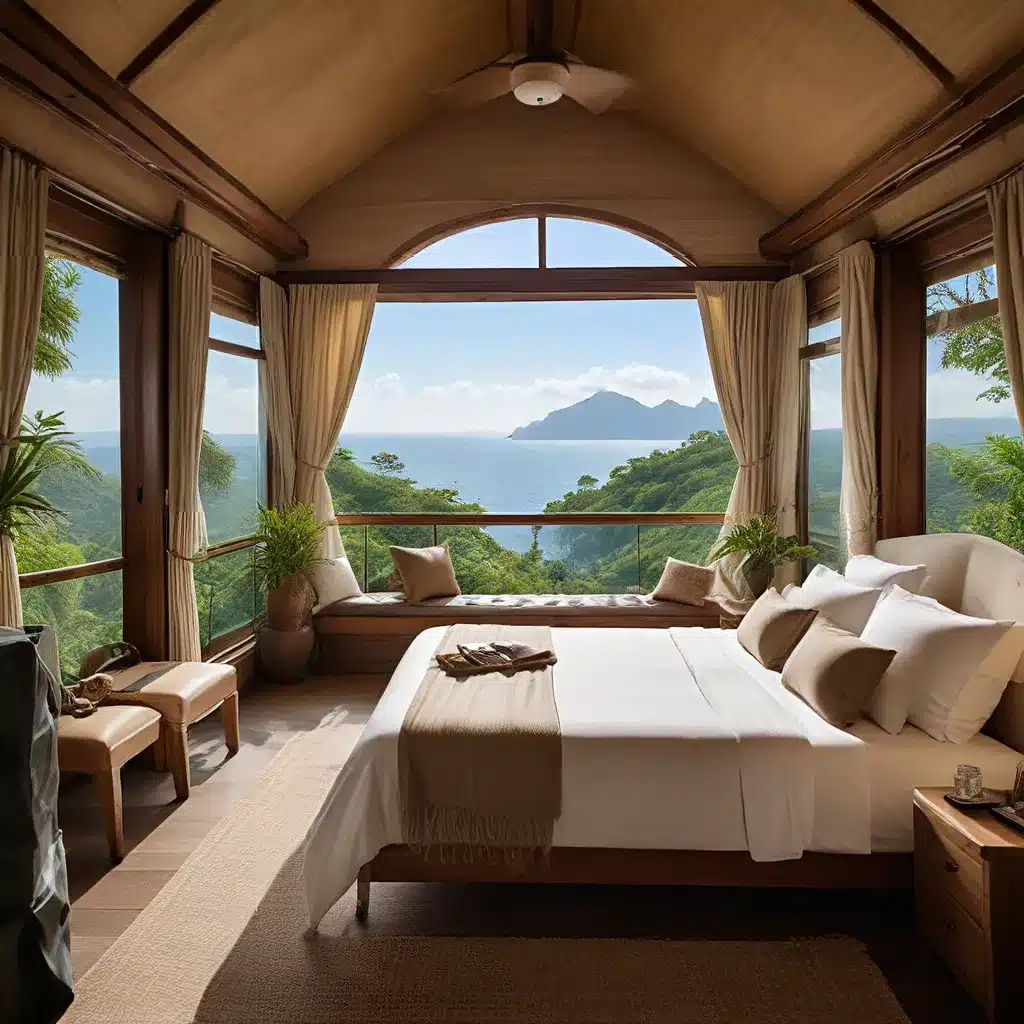
In today’s era of heightened environmental consciousness, the luxury travel industry faces a unique challenge: how to provide the exceptional experiences and indulgences that discerning travelers expect, while simultaneously minimizing the impact on the planet. Fortunately, a growing number of boutique hotels, sustainable hospitality providers, and conscious chefs are leading the charge in eco-friendly luxury travel.
Rethinking Luxury: Sustainable Hospitality Trends
The concept of luxury is evolving, with savvy travelers increasingly seeking experiences that not only cater to their personal indulgences but also align with their values of environmental stewardship. Bouteco, a leading authority on sustainable luxury travel, notes that “the modern luxury traveler is placing greater emphasis on ethical and sustainable practices, seeking out destinations and accommodations that prioritize eco-consciousness.”
One such property is Casa Xixim, a stunning beachfront resort in Mexico that has embraced sustainable design and operational practices. By incorporating renewable energy sources, implementing water conservation measures, and sourcing locally produced goods, Casa Xixim has positioned itself as a shining example of how luxury can coexist with environmental responsibility.
Another trend gaining traction in the luxury hospitality sector is the rise of farm-to-table dining experiences. Chefs like Tom Hunt, a champion of conscious cuisine and food waste reduction, are working with boutique hotels to offer guests a immersive culinary journey that celebrates local, seasonal, and ethically sourced ingredients. This not only elevates the dining experience but also contributes to a more sustainable food system.
Eco-Luxury Event Hosting: Elevating Experiences with a Conscience
As the demand for luxury events and corporate gatherings continues to grow, event planners and hospitality providers are recognizing the importance of incorporating sustainable practices into their offerings. From sourcing locally-produced and zero-waste decor to implementing energy-efficient lighting and waste management solutions, these professionals are redefining what it means to host a truly elevated, eco-conscious event.
The wastED pop-up at Selfridges, organized by a collective of Michelin-starred chefs, is a prime example of how luxury dining can be reimagined with sustainability in mind. By utilizing overlooked or discarded ingredients, these culinary innovators created a menu that not only delighted the senses but also highlighted the potential to reduce food waste on a grand scale.
Empowering Luxury Travelers to Make a Difference
As the demand for eco-friendly luxury experiences continues to grow, travelers themselves have a crucial role to play in driving positive change within the industry. By researching and supporting sustainable hospitality providers, conscious chefs, and event planners who prioritize environmental responsibility, luxury travelers can use their purchasing power to incentivize broader adoption of sustainable practices.
Furthermore, individual travelers can actively reduce their own carbon footprint while enjoying the indulgences of luxury travel. Simple steps like packing light, opting for public transportation, and minimizing single-use plastics can make a significant difference in mitigating the environmental impact of one’s travels.
Conclusion: Elevating Eco-Consciousness in Luxury Hospitality
The future of luxury travel lies in the harmonious integration of exceptional experiences and environmental stewardship. By embracing sustainable hospitality, conscious cuisine, and eco-friendly event hosting, the luxury industry can continue to cater to the discerning tastes of modern travelers while contributing to a more sustainable future.
As Tom Hunt eloquently states, “My ambition and drive is to improve the environment by helping people reconnect with their food. The goal is to create a more conscious and joyous global community and achieving a more sustainable future.” This sentiment lies at the heart of the eco-luxury travel movement, and it is up to both industry leaders and conscious consumers to elevate this vision and make it a reality.
Ultimately, the journey towards eco-conscious luxury travel is not about sacrificing indulgence, but rather about redefining it – a pursuit of excellence that is in perfect harmony with the preservation of our planet. By embracing this ethos, travelers can enjoy the finest experiences while leaving a lighter footprint, and the luxury hospitality industry can cement its status as a beacon of sustainable innovation.


